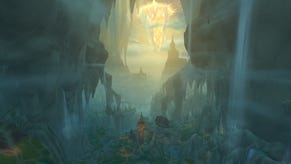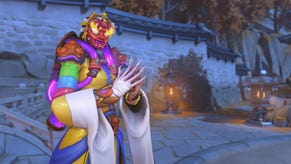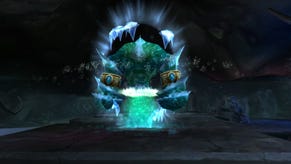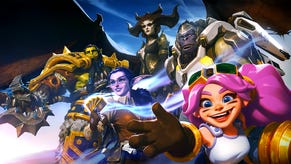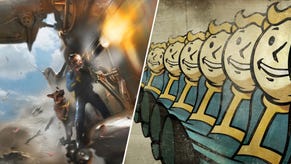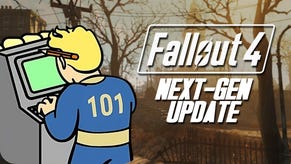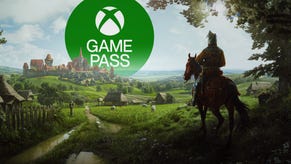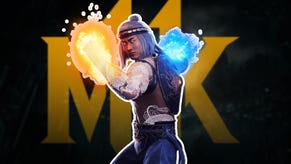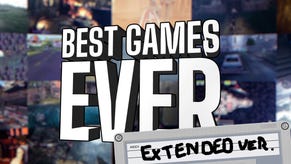Interview: Blizzard's Tom Chilton
Tom Chilton, known to World of Warcraft players as "Kalgan", knows a little about community feedback.
As a lead designer on World of Warcraft and its first expansion, Burning Crusade, Chilton became the public face of Blizzard's development and design team -and the focal point for the gaming public's admiration and more often than not - anger - at decisions made within the game.
Recognized as the main force behind WoW's player vs player (PVP) system, Chilton is largely responsible for the game's "Arena" system, which also acts as the game's pro player platform. But Chilton's design influence will be felt beyond that when the next World of Warcraft expansion - Cataclysm - goes on sale.
He's also one of the core team working on Blizzard's "next" MMO.
[Interview by Justin Kranzl]
VG247: How many more years has WoW got in it?
Tom Chilton: Wow, that's really hard to predict actually. I could still see it going for at least another five years. It depends on what you mean by "going" - before we actually shut the servers down...?
VG247: More of "before there's another clear successor".
Tom Chilton: A clear number one MMO or Blizzard MMO? I don't know. I hope that if some game beats World of Warcraft in terms of its size and success I hope it's one that we make. As everybody knows we have a MMO coming out that's still in development; if something's going to beat WoW, [it's] hopefully that one. But you never know.
How much of your time would go on the new MMO compared to the Cataclysm expansion?
Chilton: It varies. Right now when we're in the thick of trying to finish Cataclysm it's very little of my time, although there have been other points where it's been more of my time. I've been involved since right after Burning Crusade launched, when we first started working on it.
What principles can you say have been carried from WoW to the new MMO?
Chilton: A lot of things that made WoW successful make sense for anything else. Making sure any game we make - and this applies to StarCraft 2 or Diablo 3 - we want our games to be "easy to learn, hard to master".
It should be approachable, it should be fun, it should capture the imagination - all that kind of stuff. But really, I can't speak of any detail.
As someone who had a "hardcore gamer" background, do you find World of Warcraft's casual-friendly shift hard to get your head around?
Chilton: To me it's something that really makes sense. I think a lot of it is dramatized. If you look at our content when World of Warcraft was first released - our most challenging content - and you look at it then, and you look at our most challenging content now, there is absolutely no doubt in my mind that the current content is way more hardcore than the old content was.
If you look at a ["vanilla" WoW] fight like Ragnaros or Onyxia or Blackwing - if you look at those encounters and you compare them to the encounters we have now - you know, the Lich King encounter in heroic modes, the Algalon encounter, etc, there's absolutely no comparison in terms of the level of complexity and how challenging those encounters are tuned compared to how they used to be.
In a lot of ways, I think it's not really true to say WoW has become easier, I think what has become easier is the majority of the WoW population is now able to experience a lot of content in some way that they used to not be able to experience. And there's a smaller power gap between the hardcore players and the not-hardcore players. So while the hardcore players have content that is more challenging than ever before, they're now only one tier of gear ahead of the majority of the WoW population. Versus back in the day where if you had the Naxxramas gear in the original WoW, the average player out there would only have dungeon quality gear and didn't have epics.
So there was a four tier gap in power between the hardcore player and the non-hardcore player.
Do you think that "gap in power" or separation is something hardcore players have an affinity for and want to preserve?
Chilton: Absolutely. That is the nature of being a hardcore player is you want as big of a gap between other people as you can possibly get. It's not like there's really two categories of player - hardcore or non-hardcore. There's realistically a breakdown in there.
If you look at guilds like [world first Lich King killers] Paragon they're a lot more hardcore than the 1000th-most hardcore guild out there. And even though those guys might consider themselves hardcore, there's still a pretty big difference. Those differences - in terms of character power - aren't as visible as they used to be.
It is natural to understand that the hardcore guys want that separation, but I think it's definitely better for the overall game to not have as big a separation as we used to have.
What are your broader aims for player vs player (PVP) in Cataclysm? What's driving it - what kind of insights?
Chilton: More than anything else we want to broaden the activities that players can do. Up until this point - from Burning Crusade until now - if you wanted to be a hardcore PVPer the only way to do that was Arenas. There's a big difference in the playstyle of an Arena versus the playstyle of a Battleground.
I never imagined this when we first created Arena - that players who liked Arenas may not like Battlegrounds and players who like Battlegrounds may not like Arenas. I always kind of imagined that PVPers like to PVP in whatever form it was.
As it turns out, there's a lot of players out there that really like the objectives-driven Battleground stuff, but they aren't as interested in doing the small scale deathmatch kind of style that the Arenas are. I'm hoping to see a higher level of competitive gameplay with the rated Battlegrounds, and that being said we also have new ways to emphasize Battlegrounds.
We have a feature that we're also working on that we haven't talked about before, which is what we call Wargames. Players will be able to challenge each other in Battlegrounds, kind of like arranged skirmishes in Arenas. Where you take your group of 10 if it's Warsong Gulch or 15 if it's Arathi Basin and you can challenge another group of 15 players to a battle in Arathi Basin. Even though it wouldn't be to get the best rewards in the game or anything like that, it would be more for fun just to play against your friends or play against rivals to see who the best is.
"Fun" isn't necessarily the first thing that comes to mind when you see hardcore players in action. Do you think the level of intensity some players have put off those starting out?
Chilton: Yeah, absolutely. We want to make sure people are having fun with the system and there's all kinds of different people that are being mashed together. As much as possible you try to separate them [newcomers from veterans]. I think that almost no matter what the activity is, you're going to see that. If you talk to somebody who trains for an Olympic sport for example, they're not doing it as much for the fun, the purity of it's own sake anymore. They're very competitive, and what they have in their mind is "I want to win."
That's a natural thing that occurs in any competitive environment.
Criticisms of WoW's current end-game [raiding] claim it's focused on learning mechanics rather than focusing on reaction time or a full awareness of the character's abilities. Is there any way to circumvent that without turning the game into a convoluted mess?
Chilton: I don't know that there is - and I don't know that I entirely agree with arguments like that. I would say it it's more accurate to say you don't need quite the same level of hand/eye coordination in World of Warcraft Arenas as you would need to play a first person shooter professionally.
However there are a lot of things you do need in Arenas more than you need in a first person shooter. In terms of like...
...thirty fingers.
Chilton: Yeah, thirty fingers, seriously. Or even the tactical depth is higher. I certainly play a lot of first person shooters and I'm very competitive when I play those, and I play a lot of World of Warcraft PVP also, and they're just very different beasts.
Some players like shooters, other players like RPG combat more - and of course they are going to both argue "ours takes more skill than yours". But really they're just kind of different in a lot of ways.
Both take a lot of skill. If you look at the top players in Arenas, there's a vastly different level of skill between them and even people considered to be very good players on their battlegroups. When you put these teams up against even players considered very good, these top level professional players will just wax the floor with them every day.
Do you think the pursuit of "gear" by players is sustainable in the long term? Do you think in 20 years virtual stuff will still be a key driver?
Chilton: I've never been one to make bold predictions about the distant future.
How about the near future - will it be the defining thing that keeps people playing?
Chilton: I think it will be. If you're talking about role playing games then probably. Ultimately the genre - the role playing genre - is all about character progression. Generally speaking, that manifests itself in terms of stats and equipment and stuff like that. I would be pretty surprised if games that brand themselves as massively multiplayer role playing games - I'd be pretty surprised if it starts to go away from that direction.
Do you think that's limiting in any respect?
Chilton: It's certainly limiting, but that's kind of what defines the genre. You could do a massively multiplayer game that was a puzzle game for example and rely exclusively on the intrinsic fun of doing the puzzles.
But at that point it would be a different genre - you're not talking about a massively multiplayer role playing game anymore.



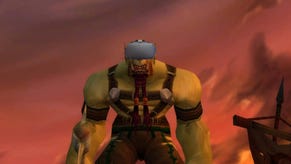
_ddwYK80.png?width=291&height=164&fit=crop&quality=80&format=jpg&auto=webp)
